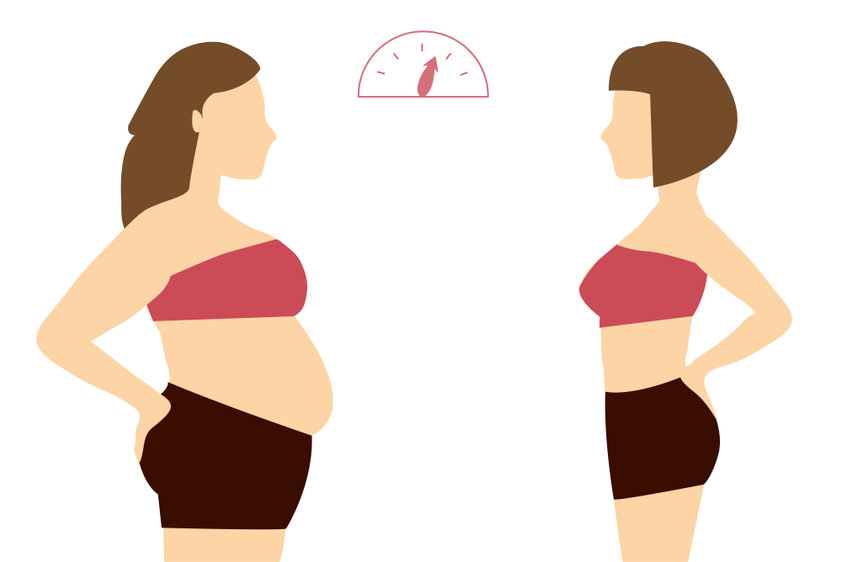Have you heard about the new weight loss drugs? A new class of weight loss drug is giving some patients with obesity new hope. But despite mounting evidence that the drugs are both safe and effective, doctors say relatively few of the country’s millions of eligible patients are taking them.
How the New Weight Loss Drugs Work
The drugs mimic a hormone produced in the gut called GLP-1, which tells the pancreas to secrete more insulin to control blood sugar. They’re not new to medicine; they’ve been used to treat Type 2 diabetes for years. But when doctors noticed that patients also lost weight, drugmakers got on board, offering the medications in higher dosages specifically to treat obesity.
It’s still unclear exactly how the drugs help with weight loss. Wadden said they seem to slow down stomach-emptying so people stop eating sooner and feel full longer.
It’s also thought that the drugs target certain receptors in the brain that affect appetite. “It may be acting upon areas of reward in the brain,” Wadden said. So, patients may eat less frequently for pure pleasure, which he calls “hedonic eating.”
The New Weight Loss Drugs
So far, two of the new drugs, both from drugmaker Novo So, been approved by the Food and Drug Administration. Saxenda was approved in 2020. The most recent, Wegovy, was approved last year for patients with body mass indexes of 30 or greater or those with BMIs of 27 or greater plus at least one weight-related condition. Studies found the weekly self-injectable helped patients lose, on average, about 15 percent of their body weight over 16 months, making it twice as effective as older weight loss drugs already on the market, like Qsymia.
A newer GLP-1 medication called tirzepatide, also a weekly injectable, appears to be even more effective. A study published last week in the New England Journal of Medicine found it helped patients lose more than 20 percent of their weight over 72 weeks.
The medications do come with side effects. Most commonly, patients complained of nausea, vomiting, diarrhea and stomach pain.
New Weight Loss Drugs are Not Covered by insurance
Wegovy costs about $1,300 a month, and most insurance doesn’t cover tripeptide companies push back against coverage for weight loss drugs, arguing that obesity is not a disease but a behavioral problem.
“There are individuals who will have a significant amount of weight loss” from these drugs, he said, but they can’t take them because they’re unaffordable. Some doctors, he added, are hesitant to prescribe them at all knowing “there’s already an up-front barrier.”
Insurance companies’ coverage decisions are worsening existing health disparities, Butsch said. Those who can afford to pay out of pocket can get the medications. But study after study shows that obesity rates are higher among those who live in poor communities, which typically have fewer grocery stories and lack access to health care.
That means that “those who really need these drugs are likely not going to get them,” he said.
An ongoing shortage
Further compounding the problem of access are ongoing production issues, forcing drug manufacturer Novo Nordisk to tell doctors not to prescribe Wegovy to new patients because it doesn’t have the supply available to meet the demand.
Novo Nordisk says in a statement on its website that the company expects the supply of Wegovy to stabilize later this year.
Downside: Regaining the Weight Once Drug is Discontinued
Weight gain after discontinuing the drugs is a concern; studies have found that two-thirds of patients gained the weight back after they stopped taking Wegovy. But obesity experts disagree about how long a patient should stay on the drugs.
Li, of UCLA, said more research is needed before the drugs are prescribed for the long term. Others, like Wadden and Butsch, argue that if obesity were treated like a chronic disease, like high blood pressure or diabetes, staying on the drugs for years wouldn’t be an issue.
Li does prescribe the drugs for some of her patients, but only after other lifestyle changes and treatments have failed. “This is a cane that’s going to help you walk,” she said. “But you’re going to have to do the walk yourself.”
Click here for more information about the new weight loss drugs.






